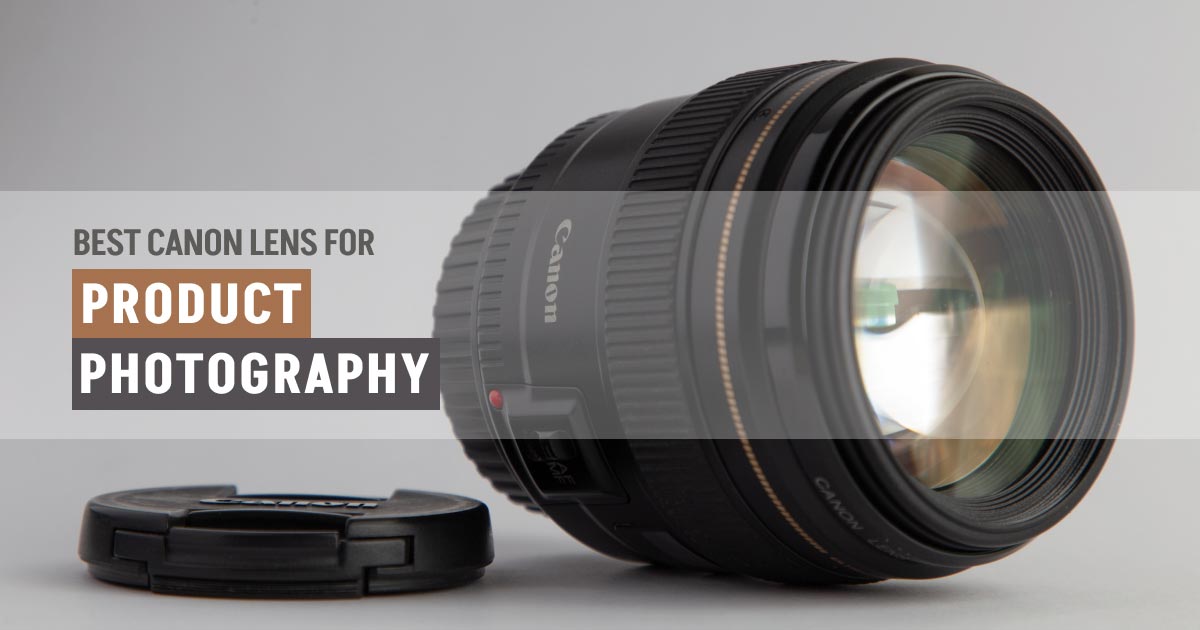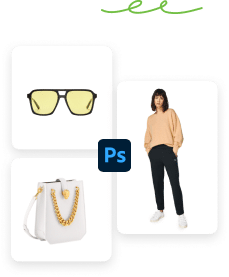Perfect product photography allures a thousand customers’ website visits. Whether you maintain the consistency or add some mixture of photographs, the lens is a crucial factor of the camera. Though cameras click pictures without lenses, but with lenses, the product photos will rock in the eCommerce markets, including Amazon, eBay, and Walmart. Attracting customers is the main target of product photography.
There, we pick the most widely used brand of lens, Canon.
Are you eager to know which Canon lens can be your acquaintance in the whole photography journey?
Tracking down the best Canon lenses for product photography makes your photographic journey so special. Let’s get in.
What you’ll learn in this article
Why Choosing the Best Lens Matters for Product Photography?
A camera alone can take photos easily, but they’re just for personal perspectives. While we consider commercial photography, we must think of the emotions around the product and create a story according to them. With a high-quality lens, you can capture those emotions in product photos.
Let’s find out more reasons why it actually matters for product photography.
- A camera lens allows you to take product photos in low light, natural light, or artificial light.
- It consistently creates sharply defined images with its whole range of f/stops.
- When light hits an image sensor directly, as when photographing a product, it records slightly differently than when light hits the sensor from an angle, which results in a small, but noticeable loss of sharpness. So, a quality lens helps to eliminate the lack of sharpness.
- Because of its compatibility, you can use a variety of camera bodies.
- Lenses have the power to reduce chromatic aberration, distortion, and vignetting,
- Although cameras are updated annually, lenses are not. As a result, there is a chance that it will last for many years.
Which Types of Lenses Are Best for Product Photography?
The branch of product photography is vast. For each branch, the proper lenses are required. This is because it provides a piece of detailed information about the product and wins customer attention. We’ve listed some major qualities of product photography lenses that a product photographer must choose.
Macro lens
The macro lens is actually a prime lens that allows you a lot of adaptability in your product and still-life photography. It is best to capture images that are incredibly sharp and finely detailed while being very close to your subject.
Its magnification factor is 1:1 but is sometimes labeled 1:2, which lets you reproduce a life-sized image on your camera’s sensor. Using its 100 mm focal length will enable you to take sharp pictures even when the subject is 31 cm away. Wider angles of view and more areas can be captured with a shorter focal length.
Macro lens product photography lets you produce more visibility than you can see with the naked eye, this can also be called macro photography. When it comes to creating macro photography with the macro lens, you can also change some camera settings for product photography, including aperture, shutter speed, ISO, and lighting setup.
Tilt-shift lens
Tilt-shift is a special kind of lens that works far better when photographing commercial products, and still-life subjects. This specialty lens that relates to the image sensor can be tilted or shifted in a variety of directions.
It enables you to modify the plane of focus and the convergence of parallel lines. With this lens, you can take pictures of two different subjects from two different distances.
Using this lens you can click the flattering angle images like food dishes when it’s on the table and click its 45-degree angle viewed. Even you can eliminate the unnecessary things that affect your frame.
Telephoto lens
Telephoto lenses are bulky and might require a tripod to support them because of their unfortunate habit of camera shaking. If you’re a professional-level product or wildlife photographer, then you probably know how valuable this kind of bulky lens is. As you probably know, the telephoto lens is one kind of prime lens and is best for product photography.
It is perhaps out of your budget, but you can use it for a long time without any issues. It has a focal length of over 100 mm. Unlike a wide-angle, a telephoto lens will provide a much thinner depth of field. It has a unique way to showcase the world by clicking the most unique product shots.
There are some more kinds of lenses, like standard lenses, ultra-wide zoom lenses, and super-telephoto lenses, which are the most common and widely used lenses.
Best Canon Lenses for Product Photography – My Recommendations
Choosing the right one is only based on where you are on the journey of your product photography. The best thing is to buy your desired lenses according to your budget. This is because it is a kind of investment. Always make the right choice when you invest in something. There are some lenses listed below-
1. Canon EF 100mm f/2.8L IS
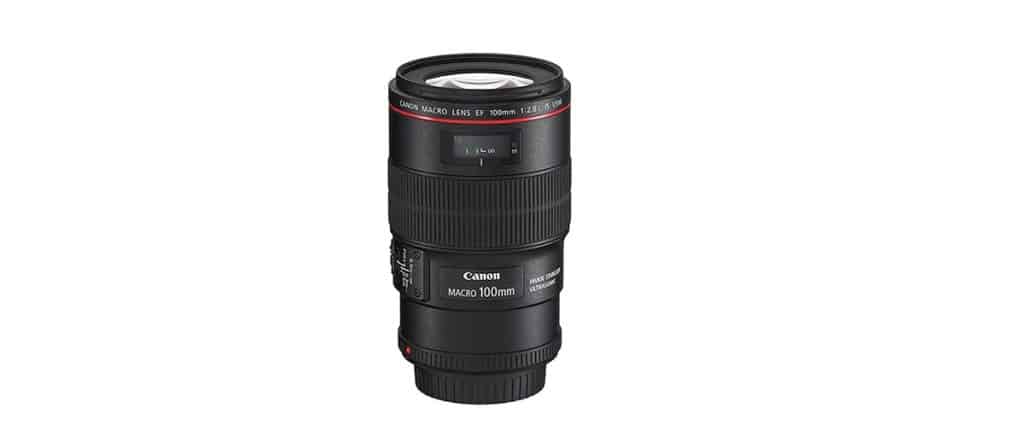
The excellent build and image quality of Canon’s EF 100mm f/2.8L IS Telephoto Lens let you take exceptional product photos. Despite the darkness prevailing around this aperture, with a perfect focal length, capture the true form of your product shots that will surely attract customers.
Every fine detail of the product is revealed perfectly through this lens. This is every product photographer’s top pick because it has so many great features, and they place it among the best lens categories.
Key specifications:
Dimensions: 4.84X3.07X3.07 inches
Lens Type: Telephoto
Compatible format: EF, APS-C
Focus mode: Manual, Auto
Focal length: maximum 100 mm.
Maximum Aperture: f/2.8
Image Stabilization: Up to four stops VR (Vibrant Reduction)
| Pros | Cons |
| Outstanding image quality | Expensive |
| Excellent ergonomics | Bulky lens hood. |
| Perfect focal length for product photography |
2. Canon EF 50mm f/1.8 STM Lens
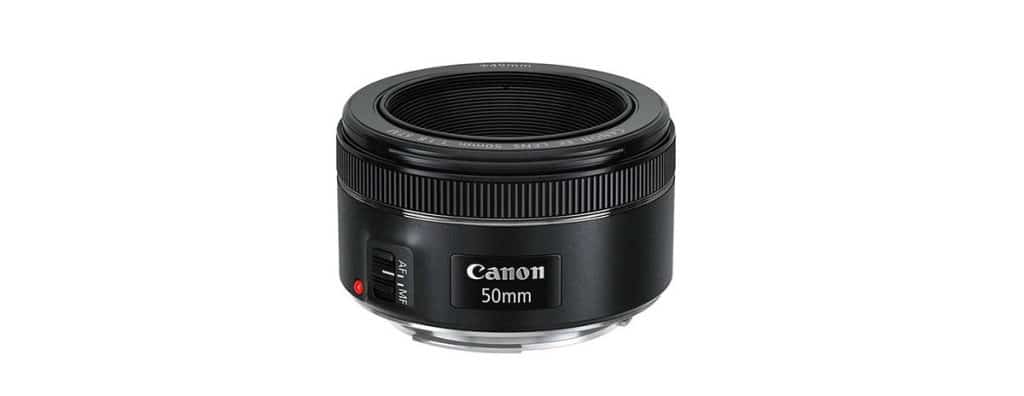
50mm of focal length can be a good starting point for every product photographer. The Canon EF 50mm f/1.8 STM Lens will do a great job as a starter. The build quality and image quality are very good. This lens is comparatively better for creating high-quality product images. It can be categorized as the best lens for beginners.
Key specifications:
Dimensions: 1.5×2.7×2.7 inches
Lens Type: Standard Prime Lens
Compatible Format: EF
Focus mode: Manual
Focal length: maximum 50 mm
Maximum Aperture: f/1.8-22
Image Stabilization: in-body
| Pros | Cons |
| Value for money. | Bokeh’s quality isn’t outstanding. |
| Best build quality | Marginal optical improvement. |
| Autofocus and accuracy with STM | |
| Flare resistance, chromatic aberration control |
3. Canon EF 85mm f/1.8 USM
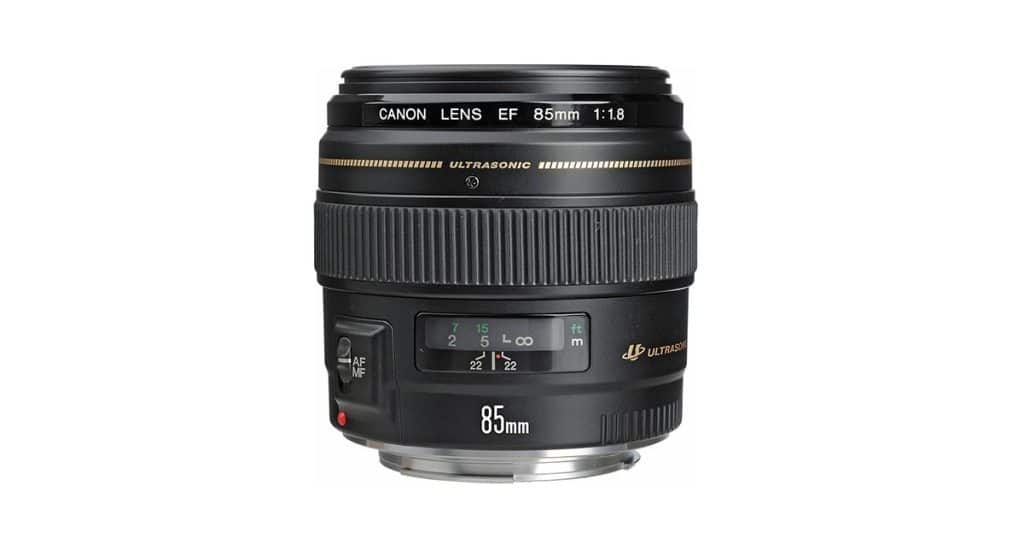
The sharp clarity and finely detailed images, no matter what the background, clicked engaging product shots with a Canon EF 85mm f/1.8 USM lens. Product photographers can accentuate the main subject by blurring the background with its f/1.8 aperture. A stunning Bokeh effect is also produced, which makes products pop. As a product photographer, it might be your wonderful companion that you won’t want to leave.
Key specifications:
Dimensions: 2.95 X 2.81 inches
Lens Type: Telephoto
Compatible format: Full-Frame
Focus mode: Auto, Manual
Focal length: maximum 85 mm
Maximum Aperture: f/1.8
Image Stabilization: in-body
| Pros | Cons |
| Easy manual focus | Motor noise. |
| Instant and accurate focus | No weather sealing. |
| Value for money | |
| Lightweight |
4. Canon EF 24-70mm f/2.8L II USM
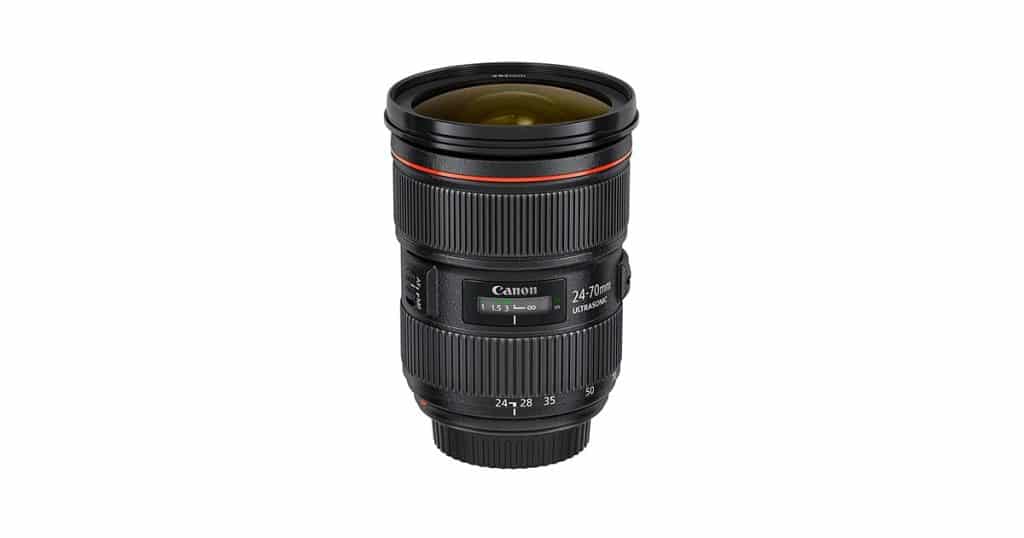
This Canon EF 24-70mm f/2.8L II USM lens fulfills your all requirements to click the product shots. With a 70 mm maximum focal length, it performs exceptionally well. A product photography enthusiast enjoys taking pictures with a standard zoom lens. Although we agree that prime lenses are best, there are some zoom lenses that will blow your mind while you’re using them to take product photos. They are capable of taking incredible pictures with fine details, and this is one of them.
Key specifications
Dimensions: 3.0 x 3.7 inches.
Lens Type: Standard Zoom lens
Compatible format: Full-frame, APS-C, APS-H
Focus mode: Auto
Focal length: 24-70 mm
Maximum Aperture: f/2.8
Image Stabilization: None.
| Pros | Cons |
| Sharp throughout the zoom range | Some distortion |
| Fairly compact | Pricey |
| Telescoping design |
5. Canon EF-S 24mm f/2.8 STM Lens

The incredibly lightweight Canon EF-S 24mm f/2.8 STM Lens, with its optical design and advanced autofocus motor, helps reduce distortion and chromatic aberrations for high sharpness and clarity in images. 24mm is a great fixed focal length with an f/2.8 aperture that creates a fantastic product shoot for commercial or outdoor work. If you’re mostly clicking the product shots instead of studio shots, this can be the better option for you.
Key specifications
Dimensions: 2.69X0.9 inches
Lens Type: Wide-angle
Compatible format: EF-S, APS-C
Focus mode: Auto
Focal length: maximum 24mm
Maximum Aperture: f/2.8
Image Stabilization: None.
| Pros | Cons |
| Quick and accurate focus | Fairly strong vignette |
| Well-controlled chromatic aberrations | In some situations, bokeh is a little busy. |
| Reasonable price |
6. Canon EF-S 55-250mm f/4.0-5.6 IS II
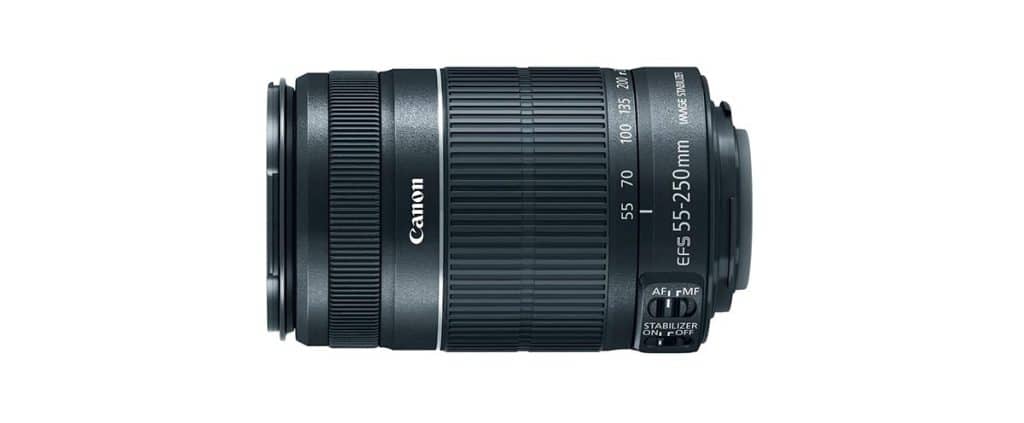
This Canon EF-S 55-250mm f/4.0-5.6 IS II telephoto lens ensures a blurry background and optical image. The wonderful click can only happen with this lens because of its maximum 250mm focal length and f/4.0-5.6 aperture. With this telephoto lens, you can take promotional product shots for a campaign. It has a rear focusing system, a high-speed CPU, and an AF algorithm that presents products in an exceptional way.
Key specifications:
Dimensions: 4.25 x 2.76 inches.
Lens Type: Telephoto Zoom Lens
Compatible format: APS-C
Focus mode: Auto
Focal length: 55- 250mm
Maximum Aperture: f/5.6
Image Stabilization: In-body
| Pros | Cons |
| Effective image stabiliser | Plastic lens mount |
| Compact size and low light | prone to veiling at the telephoto end. |
| Autofocus performance in accuracy, speed, and noise. | |
| Low chromatic aberrations and vignette |
7. Canon EF-S 10-18mm f/4.5-5.6 IS STM Lens
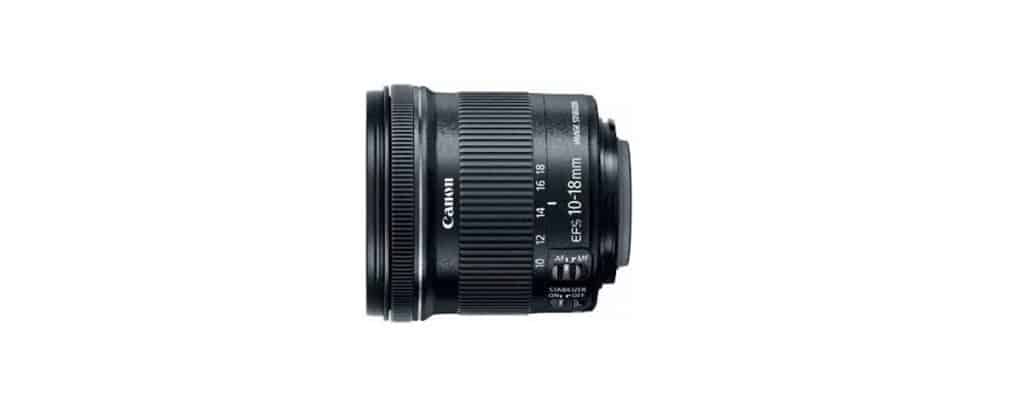
The Canon EF-S 10-18mm f/4.5-5.6 IS STM Lens is one of the best product photography lenses and takes you on a surprising journey. It has an optical zoom system and large diameter elements. This lens produces visually appealing product images that can be very effective in product marketing. Both the build and image quality are of a high caliber.
Key specifications
Dimensions: 2.94 x 2.83 inches.
Lens Type: Wide-angle Zoom
Compatible format: APS-C
Focus mode: Auto
Focal length:10-18 mm
Maximum Aperture: f/5.6
Image Stabilization: up to four stops.
| Pros | Cons |
| Perfect pricing with great quality | Hood separately sold. |
| Extremely light | |
| Use image stabilisation |
8. Canon EF 17-40mm f/4L USM
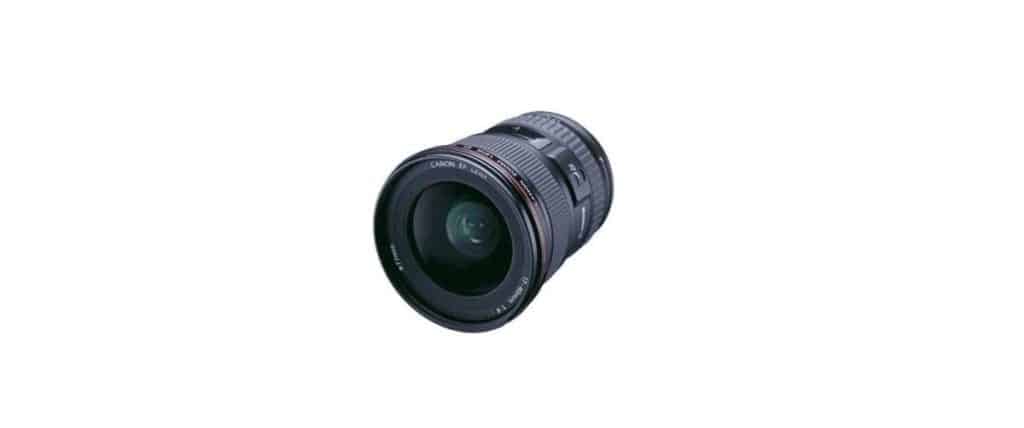
Canon EF 17-40mm f/4L USM has gained more popularity in the list of affordability with such an exceptional performance globally. It’s nicely designed for dirt and dust protection. This lens is noiseless and its cutting-edge performing focal length and aperture capture wonderful product shots. Though it has no fixed focal length, it is one of the most popular zoom lenses.
Key specifications
Dimensions: 3.29 X 3.81 inches.
Lens Type: Ultra wide-angle zoom
Compatible format: Full-frame
Focus mode: Manual
Focal length: 17-40 mm
Maximum Aperture: f/4.0
Image Stabilization: None
| Pros | Cons |
| Very good build quality | Barrel distortion |
| Lightweight | No IS |
| Weather sealed | Goofy lens hood. |
9. Canon EF 70-200mm f/2.8L is III USM
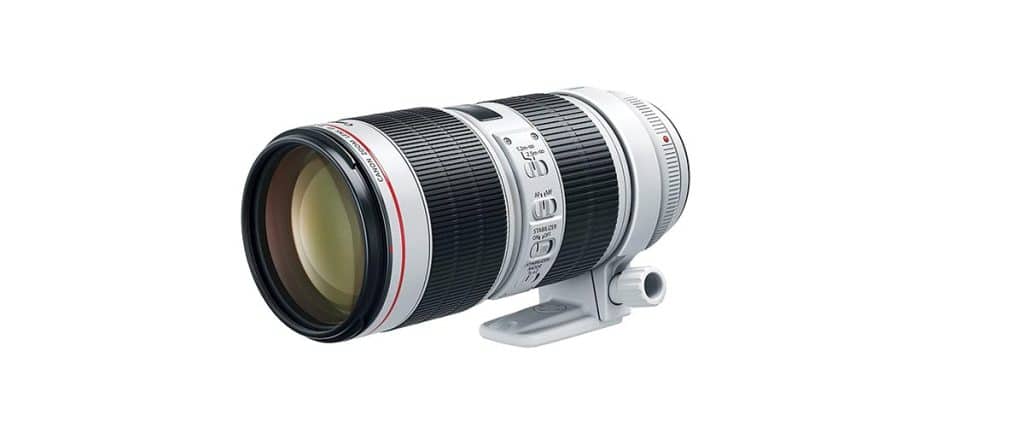
The Canon EF 70-200mm f/2.8L IS III USM lens is equipped with the latest technology. Its high aperture grabs the viewer’s attention to the product’s fine details. It may be a little bit costly but most product photographers must invest their money in it for its fine quality image and cutting-edge performance. This is the best lens in the category of telephoto zoom lens.
Key specifications:
Dimensions: 3.5×7.83 inches.
Lens Type: Telephoto Zoom
Compatible format: Full-frame.
Focus mode: Auto
Focal length: 70-200 mm
Maximum Aperture: f/2.8
Image Stabilization: up to 3.5 stops
| Pros | Cons |
| Strong sharpness | Some distortion |
| Good build-quality | Modest vignette |
| Dust and moisture protection |
10. Canon EF 100-400mm f/4.5-5.6L IS II USM Lens
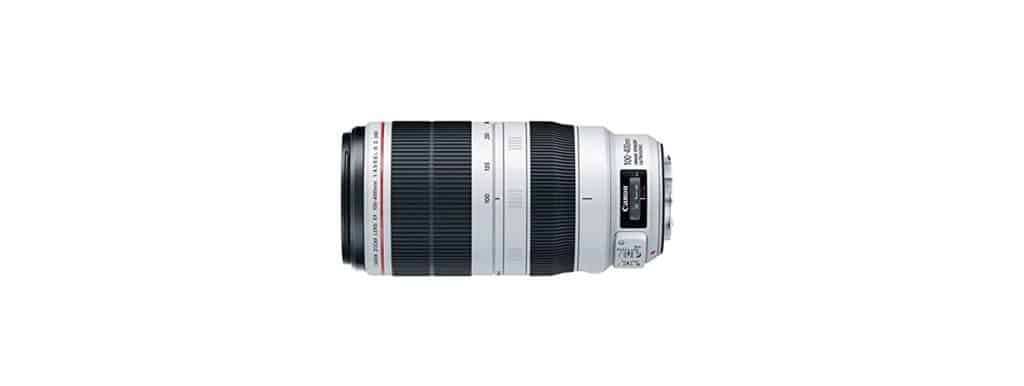
Canon EF 100-400mm f/4.5-5.6L IS II USM Lens has a well-implemented and high-end design. Its excellent focal length wins the heart of the most product, landscape, and wildlife photographers. Its focal length of 100-400 mm and aperture of f/4.5-5.6L shows you an outstanding image quality that can’t be denied. It could be heavy but you can use a tripod while clicking the amazing shots. It has a well-balanced stabilizer that might encourage you to make decision of purchase.
Key specifications:
Dimensions: 3.7 X7.6 inches
Lens Type: Telephoto Zoom lens
Compatible format: Full-Frame
Focus mode: Auto
Focal length: 100-400 mm
Maximum Aperture: f/5.6
Image Stabilization: up to 4 stops
| Pros | Cons |
| Great handling | Very expensive |
| Good build-quality | Quite weighty |
| Powerful telephoto zoom range |
Also Read: What is the Best Nikon Lens for Wedding Photography?
Things to Consider While Buying the Best Lens for Product Photography
While buying photographic lenses, we must vary the quality of the lens structure, the maximum aperture, and its focal lengths. There are more factors that need to be considered, such as-
Full frame or Cropped Sensor
The camera sensor in your DSLRs is basically rectangular in size and has a photosensitive surface. In order to create an image, it converts the recorded information into electro signals after detecting light waves. This point is necessary to consider while buying because the sensor of the camera affects the image quality.
Full frame sensors are widely used by professional photographers and for shooting high-end commercial projects, while APS-C sensors or smaller crop sensors are mostly used by niche professionals or general ones who spare time for taking and sharing pictures on social media. Full frame produces a high-resolution camera than crop sensors.
A Full frame camera sensor has a much broader dynamic range and takes high-contrast images than a crop sensor. The image’s depth of field depends on the lens, focal length, and aperture, while the cropped sensor provides a shallower depth of field than a full frame. With the same aperture, a full frame gives you more bokeh, less noise, and more sharpness in comparison to a crop sensor.
Zoom or Prime lens
When we think of buying a lens, this is the most concerning part, “Which lens is perfectly paired with your DSLR’s Prime Lens or Zoom Lens?”
When it comes to taking convincing product or food photos, a prime lens is better than a zoom lens. A prime lens has a fixed focal length, while a zoom lens has a variable focal length. Though prime lenses are not causing lens diffraction, which happens when light interacts with an object, zoom lenses can.
Prime lenses have the inherent ability to produce images that are sharper and shallower in the depth of field. However, some premium quality zoom lenses can also produce excellent results in product photography. When it comes to the performance of the lens—its speed, image quality, sharpness, and low-light performance—it beats a prime lens.
Even though the prime lens is not as versatile as a zoom lens, its 24mm wide-angle field of view is great for event photography, landscape photography, and group portraits, and it’s 35mm and 50mm normal fields of view stand out with jewelry and car photography, food photography, and Amazon product photography.
Image Stabilization
One more factor to be considered is image stabilization. Stabilization lets you capture product shots without shaky vibes and a lower shutter speed while holding a camera. There, you need a smaller lighting setup. This feature includes your camera or the lens.
If it is in-lens then that is electronically controlled and shifted to the opposite side of any camera shake. In-lens image stabilization allows smooth performance while using a longer focal length.
When in-camera, you must mount the camera on a tripod without turning off IS because if you do, the feedback loop may detect its own vibration and begin moving the camera even when it is still. If you want the sharpest results for your product shots, you may turn off the image stabilization when the camera is tied to a sturdy tripod.
Aperture
Aperture is essentially the size of the hole through which light enters the sensor. In product photography, the aperture helps to adjust how much background focus is needed and also the amount of light it lets in.
The larger aperture the more light lets in but the lower depth of field. It also causes more money to be spent. In terms of general view, you want more creative product shots, so you can work with f/4 to f/8, and for background product photography, f/12 to f/16.
Focal Length
The focal length controls how far the lens will expand because a longer focal length will make a subject appear closer. It is must considerable fact while photographing product photography. Focal length influences the DOF (depth of field).
With the longer focal length, the background gets blurry, so the whole focus comes to the center. The product shots on white backgrounds often grab attention as much as the product itself. It also affects the perspective; with its wider lens, the product looks larger than the larger lens.
The sensor size also influences the focal length, so you can go from 50mm to 100mm on a full-frame camera and from 35mm to 60mm on a crop sensor camera. That can be a great choice for product photography branches including furniture, jewelry, outdoor, and packshot.
You May Also Read: What is the Best Nikon Lens for Product Photography?
FAQ
Is a 50mm lens good for product photography?
If you’re a beginner in product photography, a 50mm lens can be just fine to start. This, 50mm lens is furnished with a unique Optical SteadyShot, which prevents obscuring and ensures sharp as well as high-quality pictures.
Do I need a macro lens for product photography?
Definitely, Yes. A macro lens is a versatile lens when it comes to product photography. It can wonderfully capture your tiny and complex products in detail and at extremely close range.
What Canon lens should every photographer have?
The Nifty Fifty 50mm should be in every photographer’s sack. This prime 50mm lens has very large maximum apertures and is even more affordable than other expensive lenses.
Can I use a wide-angle lens for product photography?
Probably No, Any lens smaller than 50mm could produce wide-angle distortion. This is because, in product photography, your goal must be sharp and present all the details. So you can use a 50mm lens instead of a wide-angle(14-35mm).
Wrapping Up,
The eCommerce world has a high demand for product photos. The only way to connect the potential buyers is by sharing interactive photos. As a photographer, you have a higher chance of getting the best contract if you invest in your camera lens. It might not be a waste of money, but it gives you a chance to acquire a high income.
Our above-listed lenses and their features could help you decide which one is the best for you. We hope you pick the right one. Good luck!
